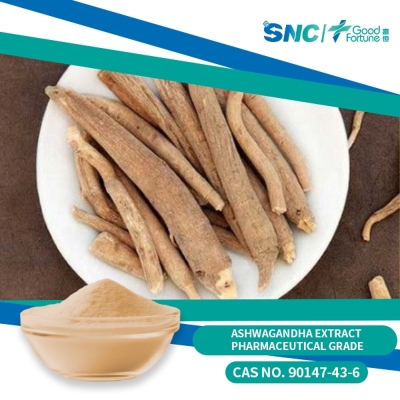-
Categories
-
Pharmaceutical Intermediates
-
Active Pharmaceutical Ingredients
-
Food Additives
- Industrial Coatings
- Agrochemicals
- Dyes and Pigments
- Surfactant
- Flavors and Fragrances
- Chemical Reagents
- Catalyst and Auxiliary
- Natural Products
- Inorganic Chemistry
-
Organic Chemistry
-
Biochemical Engineering
- Analytical Chemistry
- Cosmetic Ingredient
-
Pharmaceutical Intermediates
Promotion
ECHEMI Mall
Wholesale
Weekly Price
Exhibition
News
-
Trade Service
Stroke affects 13.
7 million people worldwide each year, and 5.
5 million people die each year, making it the second leading cause
of death.
The main subtypes of stroke include ischemic stroke (IS) and hemorrhagic stroke (HS).
At present, there are about 13 million stroke patients in China, and the deaths account for 22.
33%
of the total deaths.
Therefore, exploring the causes of stroke is important
to treat and prevent stroke.
Previous research has shown that hypertension or a history of diabetes, hypertension, smoking, and heavy drinking are considered modifiable risk factors for IS, while age, sex, and genetics are non-modifiable risk factors
.
The estimated heritability of IS is about 37.
9% calculated by current genome-wide complex trait analysis, so the heritability and gene-environment interaction of IS deletion still need to be further explored
.
Thrombospondin-1 (THBS1) is a multifunctional glycoprotein released from platelets, macrophages, and adipocytes involved in a wide range of physiological and pathological processes such as tissue remodeling, wound healing, angiogenesis, and inflammation regulation, and also regulates the activation
of transforming growth factor-β1 (TGF-β1).
In addition, plasma THBS1 levels were elevated
in patients with IS after 2 hours after tPA treatment compared to the control group.
Therefore, serum THBS1 levels are considered independent predictors of
good outcomes at baseline and after 6 months.
Therefore, further population-based studies are needed to validate the association
between THBS1 and IS.
This study aimed to explore genetic variants in THBS1 and whether mRNA expression is associated
with susceptibility to IS and long-term death after stroke through case-control and cohort studies in Chinese populations.
Research results
1.
Association analysis of THBS1 variant and IS in case-control studies
The genotype and allele distribution of SNP rs2236741 followed HWE in both the control and IS groups, and after adjusting for covariates, the dominant and recessive models of the two SNPs were not significantly associated with IS (Table 1).
Further stratified analysis by age, sex, smoking, alcohol consumption, hypertension, diabetes, and dyslipidemia did not find any significant associations
.
There was no significant association
between THBS1 subtypes.
Table 1 Association analysis of THBS1 variant and ischemic stroke risk in case-control studies
2.
Association analysis of THBS1 variant and long-term mortality risk after ischemic stroke
Variants of rs2236741 and rs3743125 were not associated with long-term death after IS, and explicit and recessive models of both SNPs were also associated with long-term death (Table 2).
Table 2 Association analysis of THBS1 variant and long-term mortality risk after stroke
3.
Comparison of THBS1 mRNA expression in ischemic stroke cases and control group
The mRNA expression level of THBS1 in IS cases was approximately equal
to that of the control group.
Further subgroup analyses by age, sex, smoking, alcohol consumption, hypertension, diabetes, and dyslipidemia did not observe significant differences
in THBS1 mRNA expression detected between IS cases and controls.
Furthermore, no significant differences in THBS1 mRNA expression were detected between the three subgroups of IS and the control group (Figure 1).
As shown in Figure 2, there was a significant difference in mRNA expression levels among rs3743125 GG, GA, and AA carriers in the THBS1 control group, while there was no difference
in the IS group.
Fig.
1 mRNA expression of common variants of THSB1 in different subtypes of IS and control groups
Fig.
2 mRNA expression of THBS1 gene between rs2236741 and rs3743125 genotypes
4.
Association analysis between thrombocytoreactive protein-1 mRNA expression and prognosis of ischemic stroke patients
RCS regression analysis found that there was no significant linear or nonlinear correlation
between THBS1 mRNA expression and the risk of all-cause mortality, stroke death, and IS death in IS patients.
Fig.
3 All-cause mortality, stroke death, and IS death were not related to THBS1 mRNA expression in IS patients
In this study, the authors investigated the relationship
between variants of THBS1 and mRNA expression with IS risk and long-term death after stroke.
The results showed no significant association
between the SNP of THBS1 and IS.
In addition, THBS1 mRNA expression in IS cases was approximately equal to that in the control group, as well as
in the general population and in different subgroups.
THBS1 mRNA expression was not significantly correlated with IS prognosis, including NIHSS score and mRS score
.
Thus, THBS1 variants and mRNA expression were not significantly associated
with IS risk and long-term death after stroke.
In conclusion, while these findings require more validation, the results suggest that there is no significant association between THBS1 polymorphisms and the incidence of IS or the risk of long-term death from IS, and no significant difference
in THBS1 mRNA expression was observed between IS patients.
The findings, while negative, may also help validate the issue that THBS1 variants and expression do not affect IS susceptibility and may provide useful evidence and guidance
for the correlation between THBS1 and IS.







